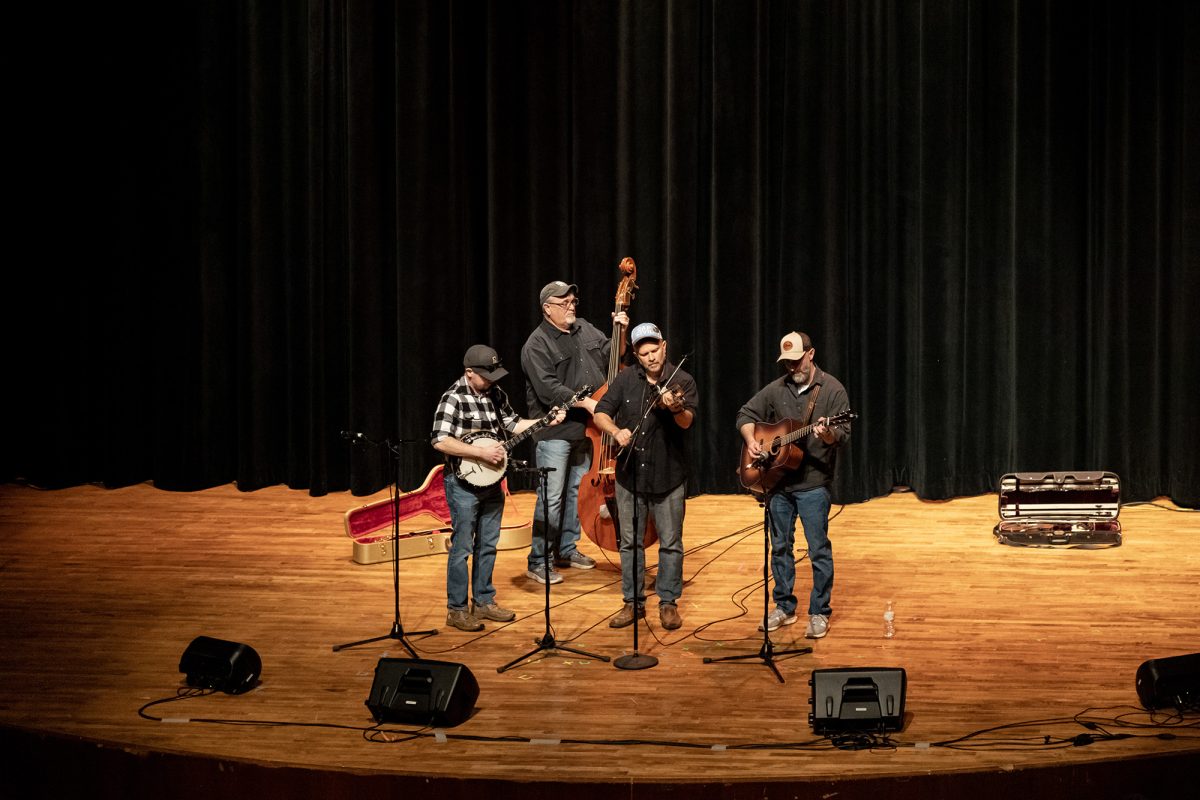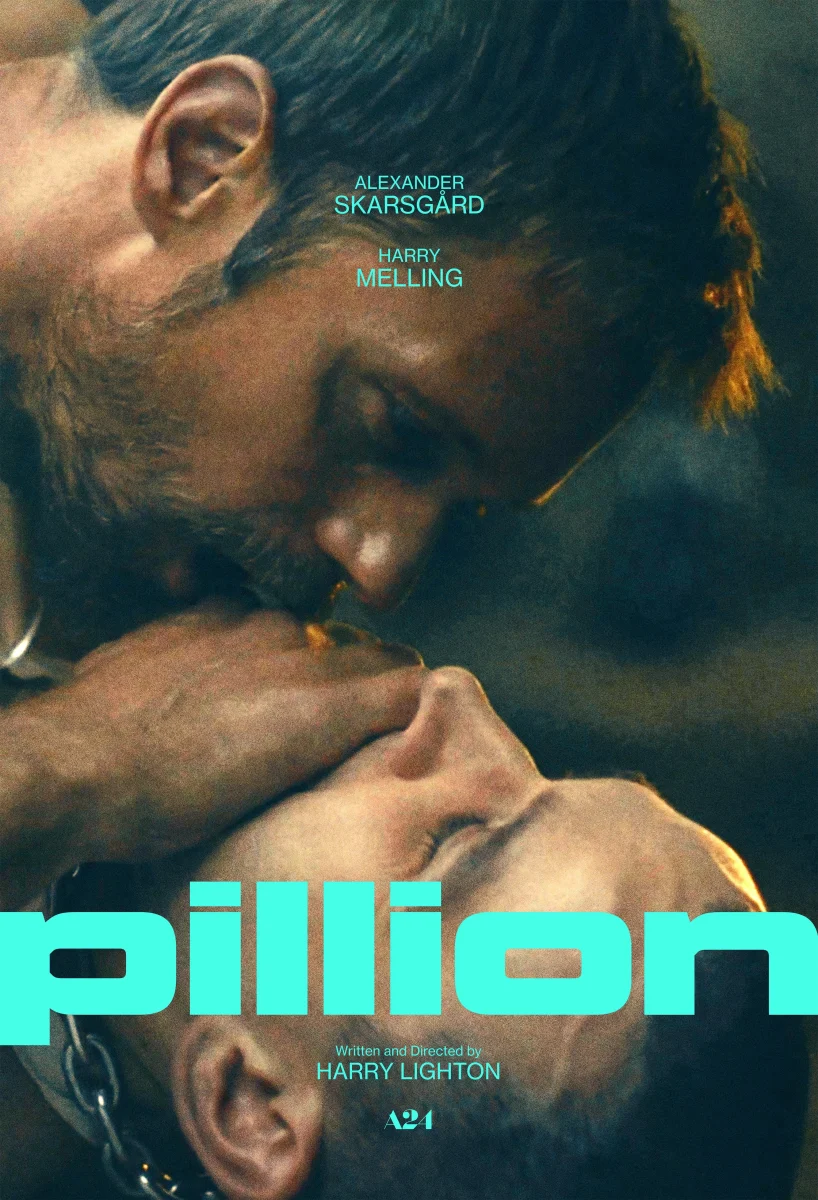All the world is smoke.
I pace around a loft, its white walls hewn out of the gray haze of fumes and conversation somewhere on the decidedly low-rent end of Milwaukee Avenue. The floorboards are spongy, giving noticeably under every booted step. I gingerly thread my way through the gathering crowd, my heavy strides clumsily avoiding the nimble, Chuck Taylored feet of various hip young things. Outside and just a few windows down, someone turns on a bodega’s window signs, the hum quavering on the warm spring air. I find a sagging couch propped sadly against the corner and gently set myself down. I am in the guts of Buddy. And I’m feeling all too much like a bull in a china shop.
The Buddy gallery/performance space is a ramshackle building bordered by furniture stores and pizza joints that sell deep-fried twinkies. It is a rather bland building, unadvertised and unadorned by any wall murals or signage, except for a single piece of notebook paper hung on a 45-degree angle and stuck in place with half a spool of packing tape. Passerines. (Illegible Band Name Here.) Calvin Johnson. An arrow points up the narrow stairs, where a bearded man wearing thick horn-rimmed glasses waits at the top collecting donations. He draws a slash on my hand and I make a right turn down a narrow corridor.
At the end of the corridor, Calvin Johnson, famous to hipsters and rock critics as the voice behind Seattle cult-favorites Beat Happening and owner of K Records, is selling mix tapes out of a suitcase. Shaking and Hollering: Women of Southern Soul 1968-1973. American Wimpy/Power Pop 1977-1985. I make a note to come back and pick these up after the Passerines play. Calvin doesn’t say much to anyone, except tersely to tell some fellow disheveled music dork, “No. No Beat Happening songs.” There’s no malice, just exhaustion. The kid slinks away as Johnson stares at his back and sighs.
The Passerines, a four-piece band (from the loverly Hyde Park) comprising three girls and one scenester, shyly set up their small practice amps onstage and look nervous, fingering their instruments and anxiously glancing around. People are trickling into Buddy, and the air is getting thicker and smokier.
“Hi, we’re the Passerines,” comes over the P.A., just barely cutting through the laughter of private jokes and half-joking come-ons. The drummer counts a song off, asking, “Who’s ready?” After the girls answer affirmatively, the set begins.
The Passerines play a sweet, sparse, slightly kitschy brand of pop music. It is clear from the get-go that they’re not expert musicians—nor do they pretend to be. These girls play with the stiff, clumsy strums and chunky chords of nervous beginners. The vocals are breathy, whispered, nervous. They are the girls too shy to ask you to prom, singing songs of love and springtime; it is impossible to tell if they’re acting.
Still, I tap my feet. The melodies themselves are gorgeous, giving one the impression that either the lack of proficiency is feigned or their talent has yet to be realized. Given the hooks in the songs, I am tempted to think the latter. I smile and nod throughout the set—a surprisingly good affair. Watching these girls croon “Do you come here often?” makes me want to hear more. I want to hear these songs late at night, all throughout the coming summer. Then, just as shyly as they came on, the Passerines politely say goodbye and pack up.
Then a nice gent with an acoustic guitar and an earnest demeanor commandeers the stage, which is as positively as I can record it in my notebook. I duck outside to Buddy’s balcony, which is really just the roof of their building as it abuts the El tracks outside. A train stops for mechanical trouble, its grinding gears and moaning breaks drowning out the singer-songwriter inside in a hail of sparks and metal. I sit on the fire escape, watching hipster couples flirt over obscure bands and socio-political talk. Two shadowy figures kiss as the train starts up again, sparks drizzling down behind them.
Inside, the next act is passed out on the couch, clutching his ukulele. He mumbles obscenities and paws angrily at his top-hatted partner who is trying to wake him. Eventually he stumbles to the microphone and sings some half-hearted dirge in Russian. I head to the roof to watch the trains again.
From the roof I can hear Calvin Johnson’s deep sorrowful voice beginning to sing. He strums a cheap classical guitar and stares wide-eyed at the audience as he sings. He looks like he’s choking on the words as they come out of his mouth, eyes going wider with every breath until they become almost froglike. I listen for about half an hour; it’s good music, but too sedate.
I feel drowsy, but I smile a bit as I head back out into the warm neon air of the Chicago spring.








